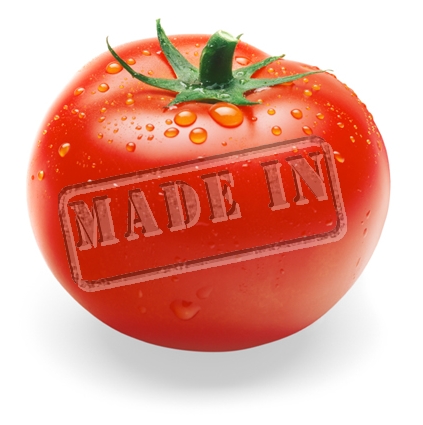Respect for your privacy is our priority
The cookie is a small information file stored in your browser each time you visit our web page.Cookies are useful because they record the history of your activity on our web page. Thus, when you return to the page, it identifies you and configures its content based on your browsing habits, your identity and your preferences.
You may accept cookies or refuse, block or delete cookies, at your convenience. To do this, you can choose from one of the options available on this window or even and if necessary, by configuring your browser.
If you refuse cookies, we can not guarantee the proper functioning of the various features of our web page.
For more information, please read the COOKIES INFORMATION section on our web page.


 At the end of June, Italian professional organizations and companies working in the processing tomato sector reacted in large numbers to state their support for the introduction of compulsory place-of-origin labeling on products.
At the end of June, Italian professional organizations and companies working in the processing tomato sector reacted in large numbers to state their support for the introduction of compulsory place-of-origin labeling on products.  "We are convinced, added the president of the IO, that the country's production of processing tomatoes is currently undervalued and underpaid on the market, and that a better acknowledgment on the part of consumers could favor a fairer competitive positioning. For example, few people know that 96% of the tomatoes grown in northern Italy are cultivated according to integrated production techniques that only make use of a very restricted list of agrochemical inputs, a list that is updated each year with product references that have less and less impact on the environment, the crops and the population – and that the remaining 4% are produced according to organic cultivation techniques.
"We are convinced, added the president of the IO, that the country's production of processing tomatoes is currently undervalued and underpaid on the market, and that a better acknowledgment on the part of consumers could favor a fairer competitive positioning. For example, few people know that 96% of the tomatoes grown in northern Italy are cultivated according to integrated production techniques that only make use of a very restricted list of agrochemical inputs, a list that is updated each year with product references that have less and less impact on the environment, the crops and the population – and that the remaining 4% are produced according to organic cultivation techniques.  "Tomatoes are one of the most important sectors for the Italian food industry in terms of quantity and turnover, but its prestige is unfortunately tarnished by accusations of lack of transparency, and by problems linked to the increasingly common phenomenon of counterfeit products and raw materials imported from abroad."
"Tomatoes are one of the most important sectors for the Italian food industry in terms of quantity and turnover, but its prestige is unfortunately tarnished by accusations of lack of transparency, and by problems linked to the increasingly common phenomenon of counterfeit products and raw materials imported from abroad." The ANICAV has also expressed its complete agreement with the resolutions presented by the Agriculture Commission of the Chamber of Parliament on 28 June with regard to place-of-origin labeling for tomato products.
The ANICAV has also expressed its complete agreement with the resolutions presented by the Agriculture Commission of the Chamber of Parliament on 28 June with regard to place-of-origin labeling for tomato products.



























